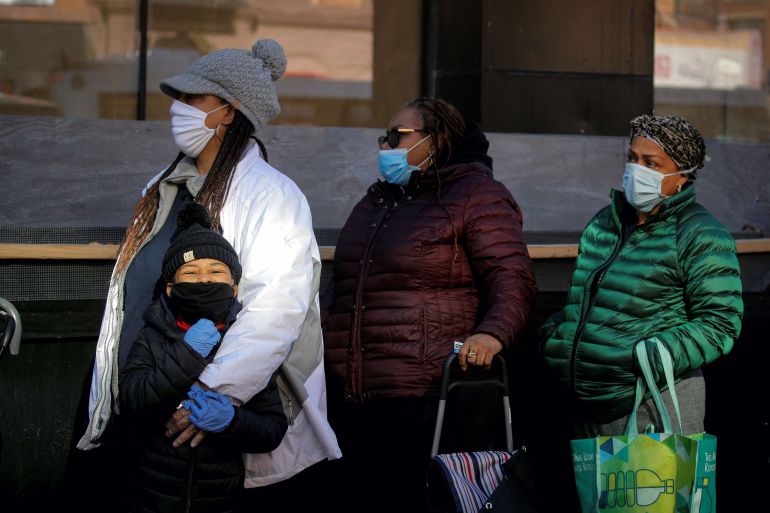The US added only 245,000 jobs in November as recovery slows
The US economy added only 245,000 jobs in November, in the latest warning sign that the labour market recovery is slowing sharply and leaving millions of out-of-work Americans behind.

The United States economy added only 245,000 jobs in November, the US Department of Labor said on Friday, in the latest warning sign that the nation’s labour market recovery is slowing sharply and leaving millions of out-of-work Americans behind.
The crucial snapshot of the US economy also showed that the unemployment rate inched down to 6.7 percent last month. Though that is 8 percentage points lower than April’s pandemic high, it is more than 3 percentage points higher than February’s pre-pandemic level.
Keep reading
list of 4 itemsK-shaped recovery: As Wall Street soars, Main Street struggles
US jobless claims fall but the data is missing the full picture
Biden’s economic team takes shape and it is full of firsts
Even more disturbing, the unemployment rate fell for reasons that bode poorly for the economy.
That is because the number of Americans either in work or actively looking for a job – a metric known as the labour force participation rate – fell to 61.5 percent in November.
That is nearly 2 full percentage points below February’s level, indicating that millions of Americans have given up looking for work and are falling out of the numbers.
The longer people are out of work, the greater the danger of long-term scarring to their working lives, as their skills erode and their networks dry up. Throw in November’s payroll gains and only 12.3 million of the 22 million jobs lost to lockdowns in March and April have been recovered.
Last month’s deceleration happened as state and local governments across the country ordered restrictions and closures to curb surging COVID-19 infections. But there is a trade-off to protecting public health because such measures crush business activity, costing jobs and making it harder for the unemployed to find a new one.
The jobs report promises to pile even more pressure on Washington to put aside partisan difference and throw a fresh financial lifeline to struggling households and businesses, not to mention state and local governments.
The buoying effects of nearly $3 trillion in pandemic relief aid Congress passed earlier this year have all but faded. Key measures including a federal $600 weekly top-up to state unemployment benefits and a programme for helping small businesses stay afloat expired at the end of July.
And millions of Americans are staring down the barrel of getting more federal relief kicked out from under them. A national moratorium on evictions, enhanced unemployment benefits and student loan repayment relief are all set to lapse at the end of this month.
That is not just a blow to workers and the families who need help from the federal government to keep their heads above water during the pandemic – it ripples throughout the entire economy.
Case in point – consumer spending, the primary engine of US economic growth, rose a mere 0.5 percent in October. That was the weakest reading since April when the nation was in the throes of severe lockdowns.
Yet for months now Democrats and Republicans have failed to come together for the American people and pass another round of stimulus.
Democrats in the House of Representatives and Republicans in the Senate have been deadlocked for months, despite repeated calls from economists and the Federal Reserve Chairman Jerome Powell to mount more fiscal aid.
The latest jostling this week has seen Congressional Democrats extend an olive branch to Republicans by scaling back demands for a more than $2 trillion package and embracing a roughly $1 trillion proposal as a starting point for negotiations.
Senate Majority leader, Republican Mitch McConnell, has so far shown no willingness to cede any ground on his preferred package worth about $500bn, but he and House Speaker, Democrat Nancy Pelosi, spoke on Thursday.
McConnell said earlier this week that more virus relief aid should be part of the $1.4 trillion spending bill which needs to pass Congress by December 11 to keep the US government open.